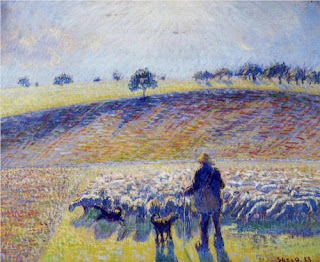 |
| Gate and Tower of the New Jerusalem |
In a profound way, the readings for this Sunday summarize and
connect the origins, work and goal of the Church. In the Gospel, Jesus gives his
followers an early indication of what will happen when he is no longer an
earthly presence among them. He promises them a ‘Holy Spirit, whom the Father
will send in my name’ and who ‘will teach you everything, and remind you of all
that I have said to you’. Here, of course, we find the basic elements of the
Trinitarian theology that has been, and remains, the truly distinguishing mark
of the Christian faith. Its principal importance, though, lies in the assurance
that we, who never experienced the historic Jesus, can nevertheless encounter
him in a Spirit of life that remains accessible to people in every age and
place.
It is this same Spirit that prompts, and enables, Paul’s
response to the famous dream in which someone in far off Macedonia calls to him
to share a Gospel whose power and relevance must break all geographical and
ethnic boundaries, and speak to the human soul that lies within everyone.
 |
| St Paul -- Giotto (1300) |
Between the Gospel
promise and the missionary Acts
of Paul the Apostle, lies Revelation’s
compellingly beautiful statement of the ultimate goal in which the work of the
Spirit will culminate. What is striking about it, is just how God centered it
is. The picture of the ‘heavenly’ Jerusalem that it paints, is not a paradise
in which all our desires and needs are met, but one in which they are
transformed and transcended within the Person of God. We now no longer need sunlight,
or clean water, or political security, or even places of worship, because God’s
presence will be so immediate that everyone ‘will see his face, and his name
will be on their foreheads’. This vision is no promise, of course, for those
whose hearts are set on wealth and power as the world understands these. But
to those who long for a full realization of the spiritual nature that God has planted
in them, no more wonderful prospect could be imagined.





